African Diaspora
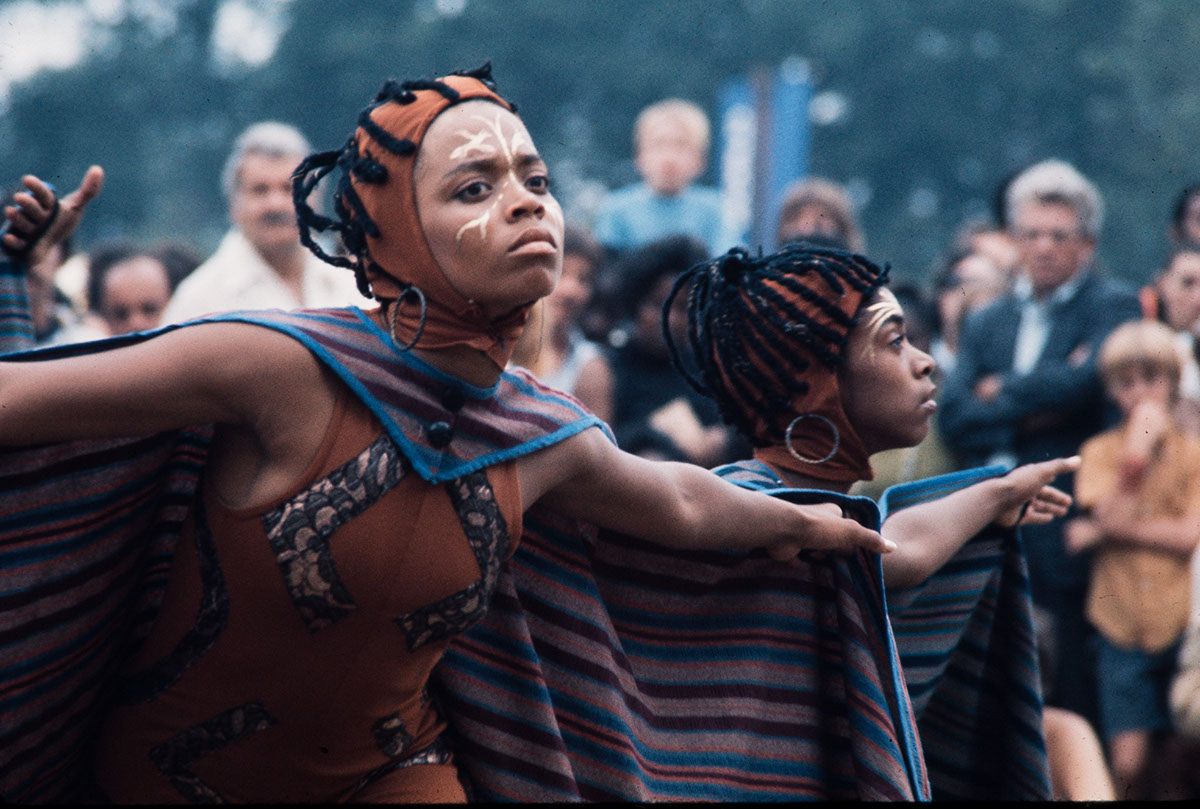
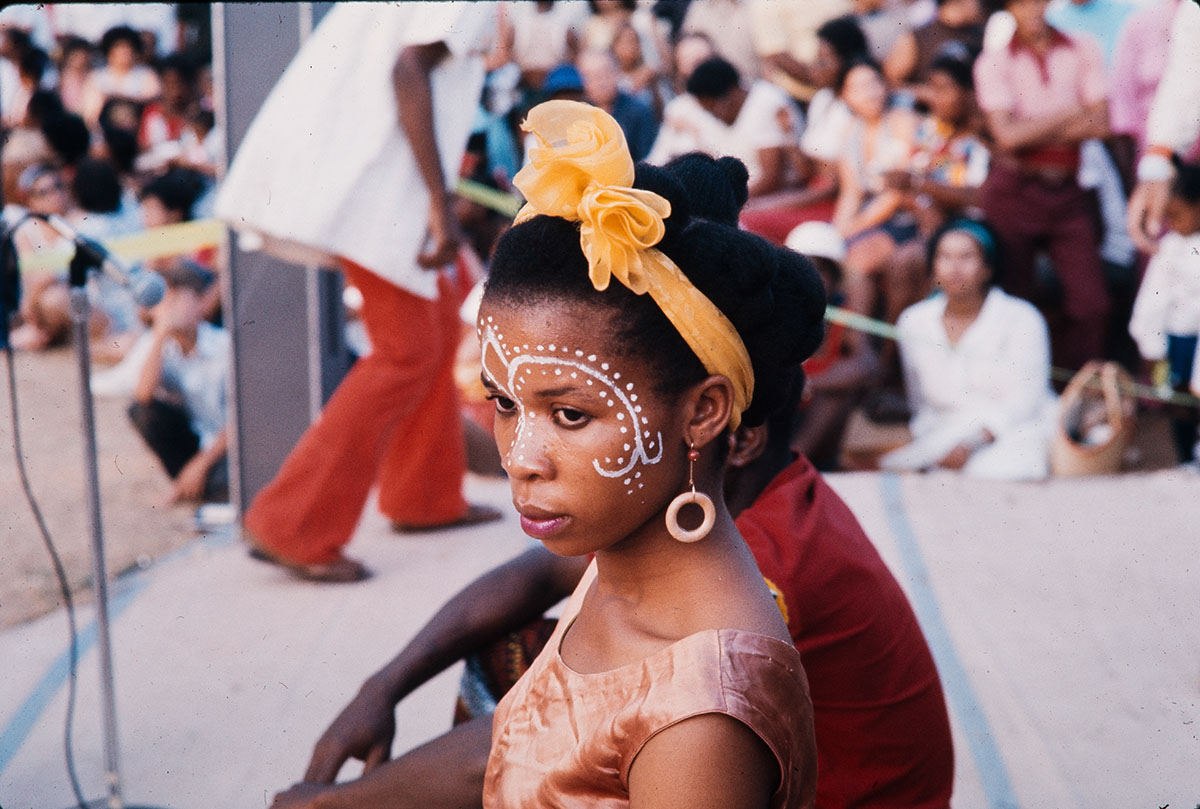
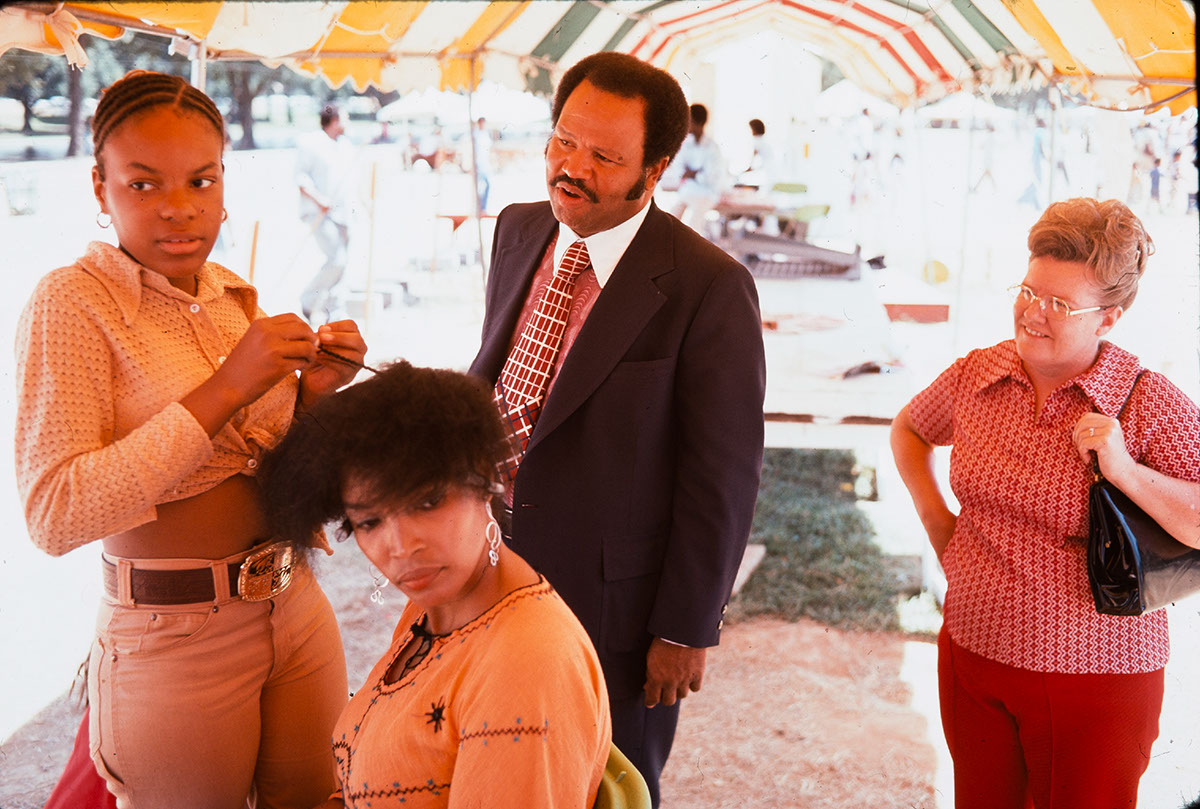
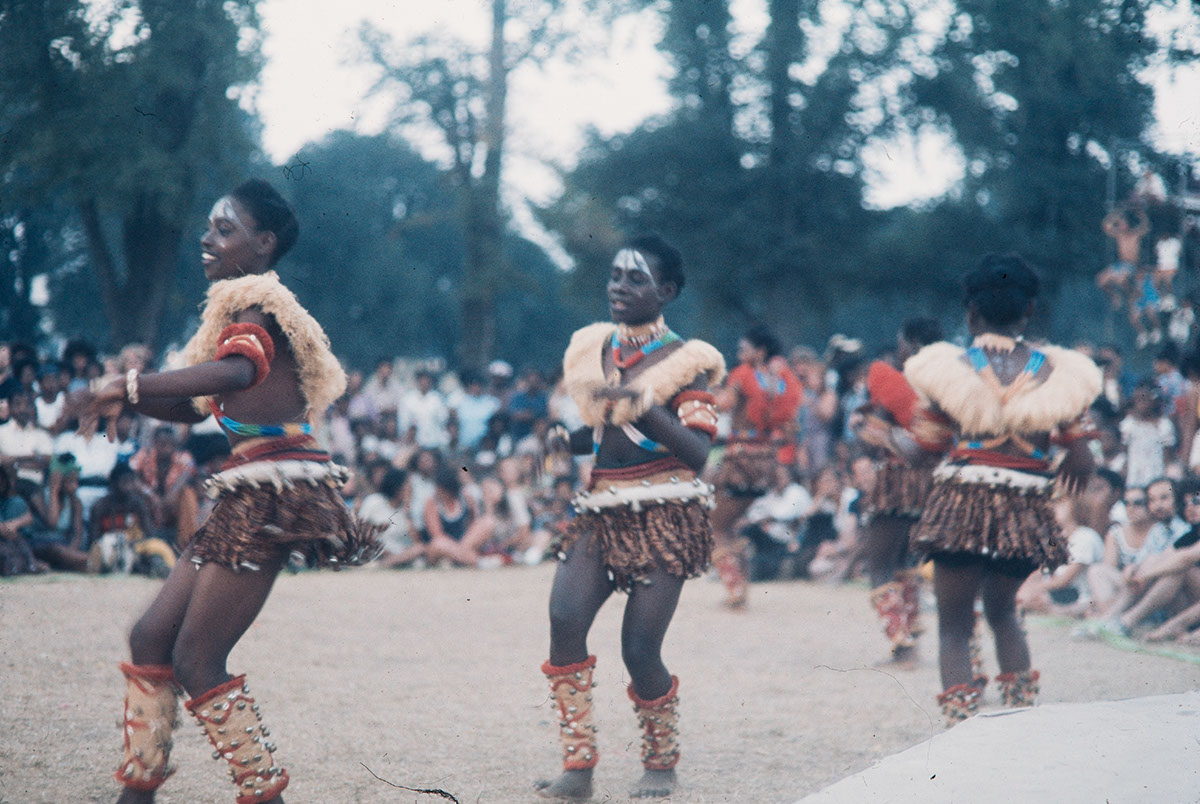
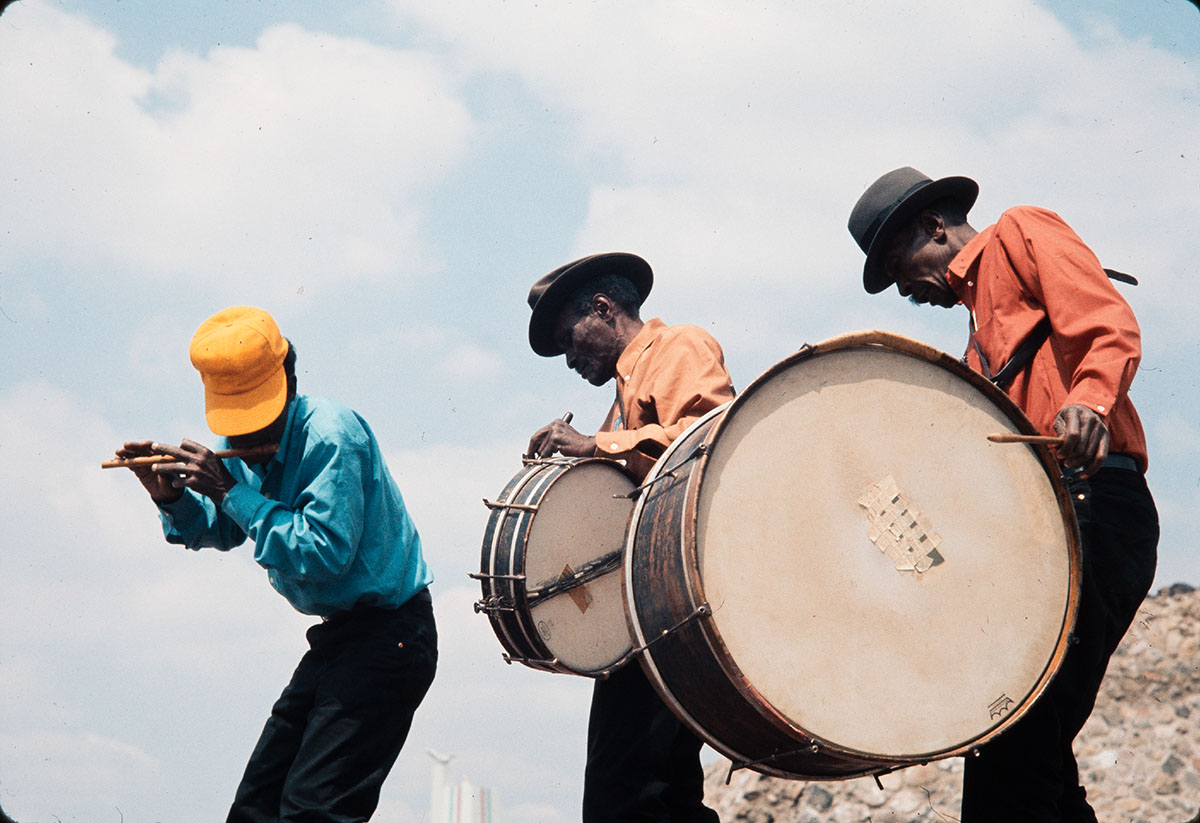

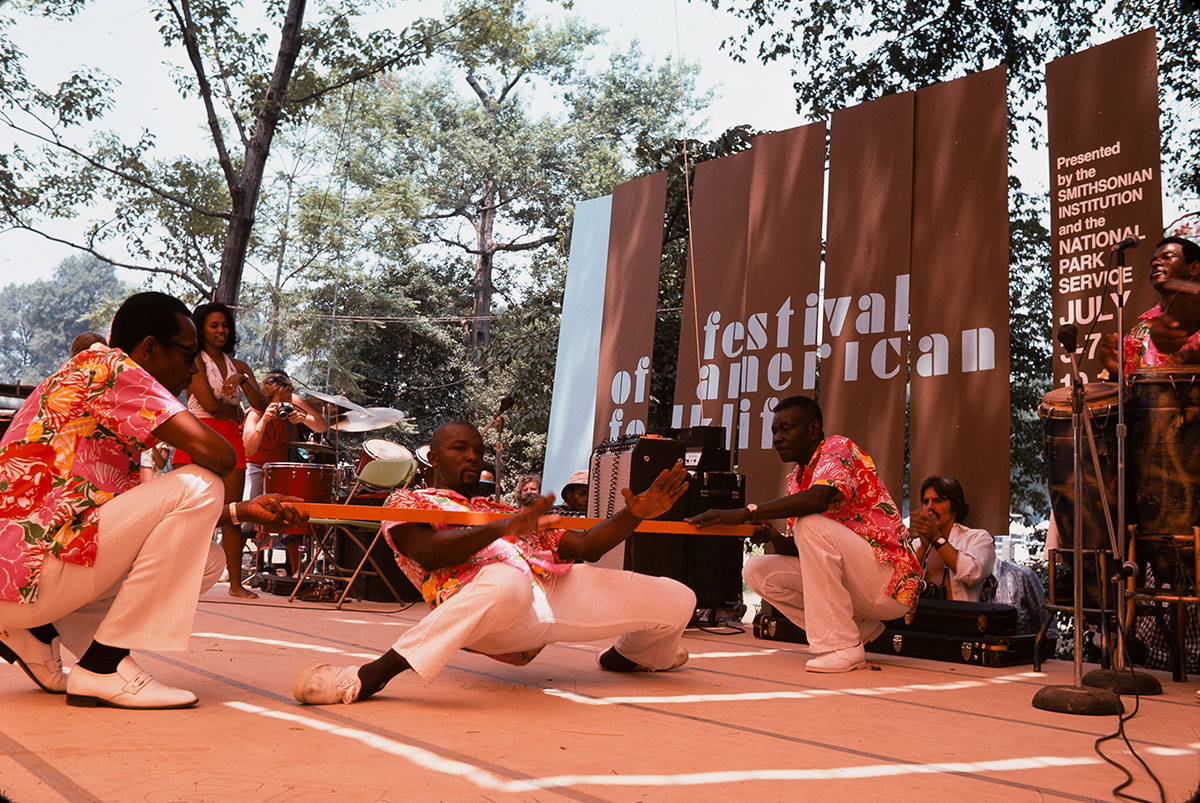
The African Diaspora program was created to pay tribute to the widely varied cultural contributions of the black American community while depicting the historical and cultural continuum that links black Americans to their African roots via the Caribbean Islands and Latin America. From the U.S., the Festival featured some 20 craftspeople and foodways demonstrators, as well as two dozen musical performers or ensembles. International contingents came from Ghana, Nigeria, and Trinidad and Tobago.
Musicians, dancers, cooks, woodcarvers, hairdressers, basket weavers, and fishnet makers from three continents exhibited the unity within diversity that characterizes the culture of Africans and their New World descendants. Performances covered urban and rural black experiences, secular and sacred life, home and community activities. Visitors witnessed rural lifestyles as reflected in basket making from South Carolina, Mississippi, and Trinidad and Tobago. In the culinary arts area, activities focused on the use of such foods as okra. Children's games and story-telling from Trinidad and Tobago, Washington, D. C. and Ghana were presented. In the music area, sacred and secular forms from West Africa, the Caribbean and the U.S. demonstrated the continuum in the Shango cult, the creation of steel bands, and calypso song. Black music of the U.S. illustrated the movement from country blues and spirituals to gospel, urban blues and jazz. U.S. black dance reflected the evolution of the black experience in America while showing the consistency in the line of the body and the importance of emphasizing certain body positions, and, in many instances, the same body steps. Similar utilizations of the body were seen in the songs and ceremonies of the traditional black church: rural Baptist, urban holiness and congregational. Performances and demonstrations took place in three structures: the church, the market place, and a traditional African house.
The African Diaspora program was led by Rosie Horn (Program Coordinator, later Rosie Lee H. Hooks) and Bernice Johnson Reagon (Folklore Specialist). It was organized with guidance from the African Diaspora Advisory Group, whose members included Roy Bryce-Laporte, James Early, Leonard Goines, Pearl Williams Jones, Worth Long, Fela Sowande, A.B. Spellman, Ron Smith, Carol Maillard, and Jane Sapp. Major sponsors included the Governments of Trinidad and Tobago, Nigeria, and Ghana.
The 1974 program constituted a pilot for a multi-year series leading up to the Bicentennial Festival in 1976. Participants from the African Diaspora program were also featured at times on the Festival Stage and in the Children's Program.

